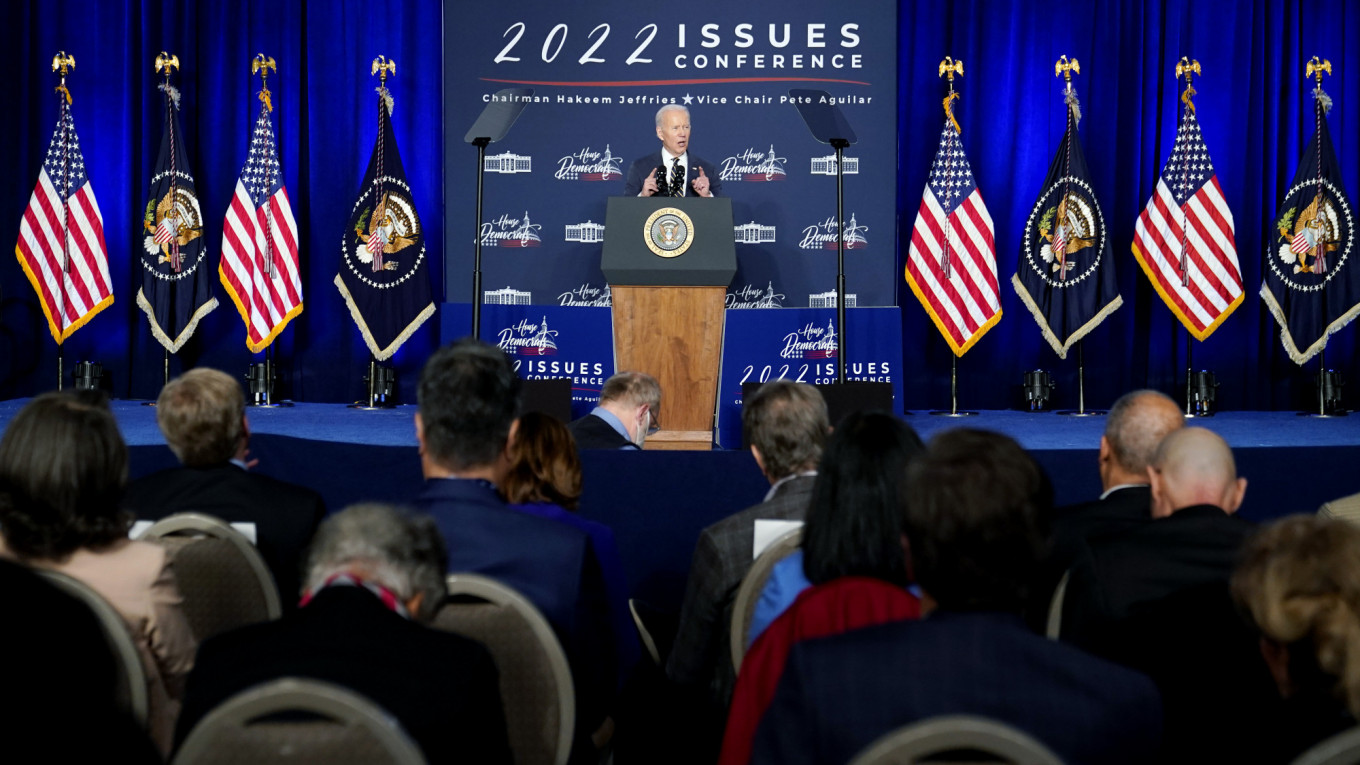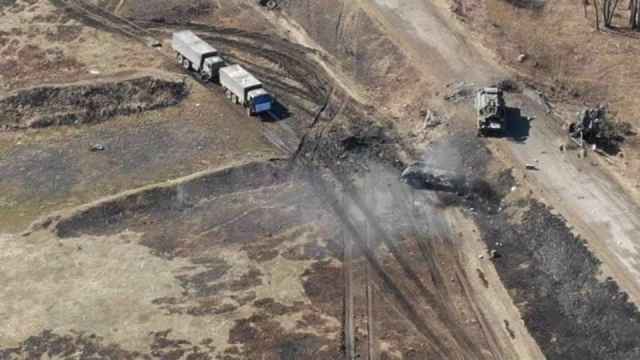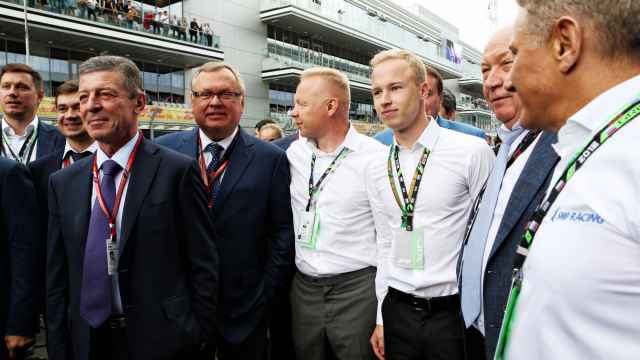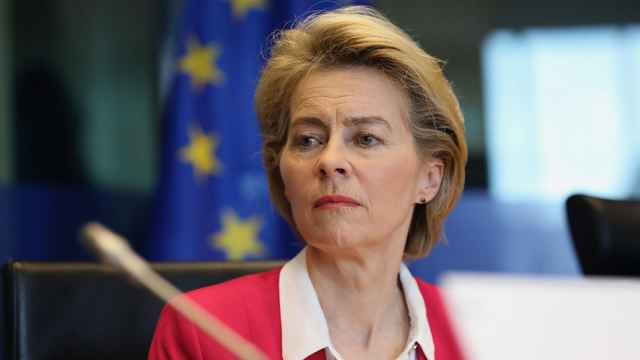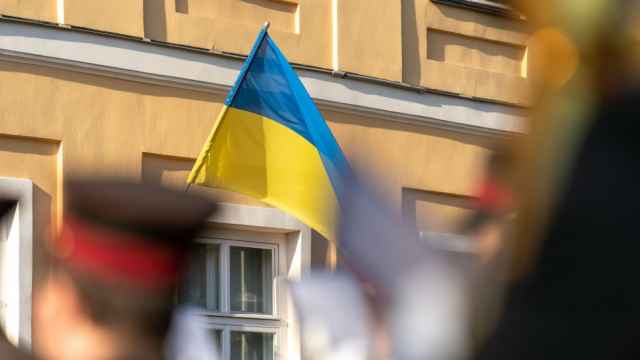The United States and its allies moved Friday to end normal trade relations with Russia, as President Joe Biden vowed the West would make Vladimir Putin "pay the price" for his invasion of Ukraine.
Biden announced the new step, which would enable Western nations to inflict steep tariff hikes on Russian goods, in coordination with NATO allies, the Group of Seven and the European Union.
Washington and Brussels also said they would cut off exports of luxury goods to Russia in what EU chief Ursula von der Leyen described as a "direct blow to the Russian elite."
Biden warned in his speech at the White House that "Putin must pay the price" as the "aggressor" in the war with its ex-Soviet neighbor.
U.S. lawmakers — who would have the final say — have already indicated they support stripping Russia of the preferential status that ensures equal treatment between international trade partners.
In a statement issued in Berlin, G7 leaders confirmed they would each "endeavor" to take action to deny Russia favored trade status.
"The United States and our allies and partners continue in lockstep to ramp up the economic pressures on Putin and to further isolate Russia on the global stage," Biden said.
Putin "cannot pursue a war that threatens the very foundation of international peace and stability and then ask for help from the international community."
A key principle of the World Trade Organization, the so-called most favored nation status known in the United States as permanent normal trade relations (PNTR), requires countries to guarantee one another equal tariff and regulatory treatment.
Stripping Moscow of the designation, granted in December 2012, would allow Biden to impose steep tariffs on Russian goods or restrict imports.
The president also announced a ban on imports of Russian vodka, diamonds and seafood into the United States.
Later in the day, the U.S. Treasury announced a raft of new sanctions targeting "elites and business executives who are associates and facilitators of the Russian regime."
These include family members of Putin's spokesmen, board members of sanctioned bank VTB and 12 members of the lower house of the Russian parliament.
The latest trade sanctions cap several rounds of measures intended to sever Russia's economic and financial ties with the rest of the world over its invasion of Ukraine.
They have included banning Russian oil imports, seizing the assets of billionaires tied to Putin, and freezing the nation's stockpile of cash.
Together, the moves have already pushed Moscow to the brink of a debt default.
Limited impact?
The steps have also caused prices for key commodities, like gasoline and wheat, to soar, harming U.S. consumers already facing the highest inflation in four decades.
Trade experts are however dubious about whether new tariffs will be effective.
"U.S. direct trade with Russia is relatively small, so higher tariffs would not do much damage to them but could raise costs for our manufacturers who rely on them for key raw materials," said William Reinsch of the Center for Strategic and International Studies in Washington.
"The additional damage this does to the trading system, while not immediate, could be significant," he said in an analysis.
The United States imported just under $30 billion in goods from Russia last year, including $17.5 billion in crude oil.
The IMF said Thursday that war and the sanctions will lead to a "sharp contraction" of the Russian economy, and slower global growth.
The Washington-based crisis lender this week approved $1.4 billion in fast-disbursing aid for Ukraine, and the World Bank also released nearly $500 million of what is expected to be a $3 billion financing package to aid the war-wracked country.
U.S. lawmakers meanwhile passed a huge spending bill on Thursday, including almost $14 billion in humanitarian and military aid for Kyiv as the Russian invasion entered its third week.
A Message from The Moscow Times:
Dear readers,
We are facing unprecedented challenges. Russia's Prosecutor General's Office has designated The Moscow Times as an "undesirable" organization, criminalizing our work and putting our staff at risk of prosecution. This follows our earlier unjust labeling as a "foreign agent."
These actions are direct attempts to silence independent journalism in Russia. The authorities claim our work "discredits the decisions of the Russian leadership." We see things differently: we strive to provide accurate, unbiased reporting on Russia.
We, the journalists of The Moscow Times, refuse to be silenced. But to continue our work, we need your help.
Your support, no matter how small, makes a world of difference. If you can, please support us monthly starting from just $2. It's quick to set up, and every contribution makes a significant impact.
By supporting The Moscow Times, you're defending open, independent journalism in the face of repression. Thank you for standing with us.
Remind me later.


